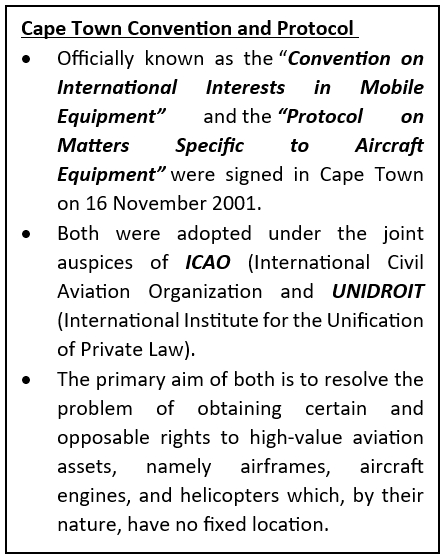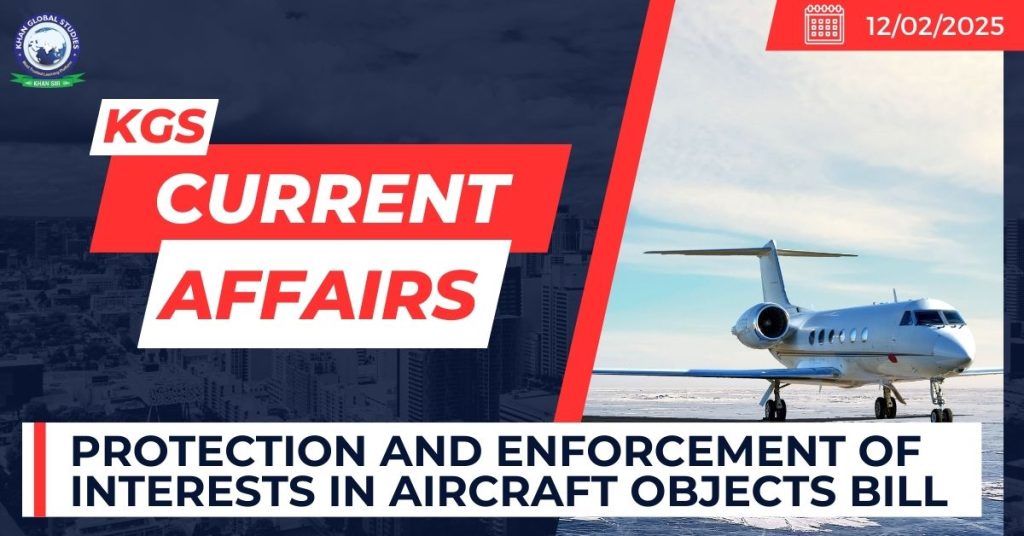Context:
Recently, the Minister for Civil Aviation introduced the Protection and Enforcement of Interests in Aircraft Objects Bill, 2025 in the Rajya Sabha to ensure the implementation of the Cape Town Convention (CTC) and its Protocol in India.
Key Highlights of the Bill:
The Bill seeks to enforce the Cape Town Convention (CTC), 2001, to standardise dispute resolution and protect interests related to aviation assets such as aircraft and engines.
- India signed the Cape Town Convention (CTC) in 2008 but has not ratified it yet, making its provisions non-binding in India.

Section 3 proposes that the Convention and Protocol will have the force of law in India, with aircraft objects.
It seeks to bring India in line with international standards for aviation financing, leasing, and asset management.
It will ensure compliance with international aviation financing and leasing standards in India.
The Directorate General of Civil Aviation (DGCA) will be the designated authority for overseeing the implementation of CTC provisions in India.
- DGCA is the regulatory body responsible for the regulation of air transport services to/from/within India and for enforcement of civil air regulations, air safety, and airworthiness standards.
- It also co-ordinates all regulatory functions with the International Civil Aviation Organisation (ICAO).
- Headquarters: New Delhi
The Bill requires debtors to maintain accurate records of dues related to aircraft ownership or usage.
- These records must be submitted for review when required, ensuring transparency and accountability.
Creditor Rights:
- Creditors have the right to exercise remedies under the CTC in case of default by the debtor.
- However, they must notify the DGCA before exercising these rights, ensuring proper oversight and regulation.
Insolvency Resolution: During insolvency proceedings, resolution professionals are permitted to retain aircraft assets for up to 60 days, provided the debtor continues to make payments for maintenance and usage.
- This provision ensures that the assets are preserved and maintained during insolvency proceedings.
Significance of the Bill
- The bill assumes significance as it is expected to lower costs for airlines as well as ensure a more secure and investor-friendly aviation sector.
- If passed, the bill is also expected to increase accessibility to air travel in the country, with domestic passenger traffic projected to rise by 7–10% and international traffic by 15–20% this year.
- If the proposed bill is passed then it will help in the acquisition of over 1,000 new aircraft by the end of the decade.

